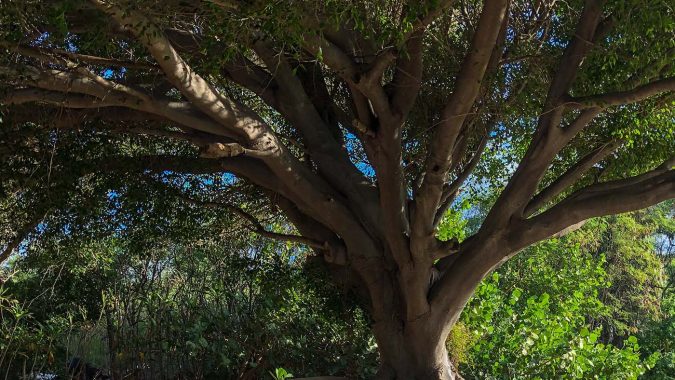
Teachings by Dharma Master Cheng Yen
Translated by Dharma as Water Development Department, Tzu Chi USA
There has been so much gratitude and so many feelings of sorrow that it is truly indescribable. It turns out that there is a great lesson for us to learn.
We must put our hearts into realizing the teachings of the Buddha, the teachings on impermanence, suffering, and emptiness. The Four Noble Truths are about the truth of suffering. This truth encompasses everything in this world. There is no one in this world who does not suffer. Everyone experiences suffering, and everyone has afflictions within their heart. Afflictions and ignorance are true suffering.
Suffering comes from the gathering of causes and conditions, which brings about karma. All karmic forces can be positive or negative, and we create them with our every thought and action. This is why I am always saying, “We must repent!” Because of our intangible discursive thoughts, we create karma, gradually accumulating these karmic forces. All disasters that occur in this world are a result of this long-term accumulation. We have been accumulating karma for such a long time, but disasters can happen within the span of an instant.
On April 2, a Taroko Express train operated by the Taiwan Railways Administration derailed. For those trapped inside the train, the hours and minutes they spent there must have felt like an eternity. With all the grief and sorrow, there is no way that things can be turned back.
There were some people who were supposed to take this train, but they abandoned their plans without really knowing why. There were others who did not plan to take this train at all at first, but on the spur of the moment, they decided to take it. Then, suddenly, some people who took this train were permanently separated from their loved ones, while some survived the accident. In a situation like this, there are inconceivable causes and conditions at work.
People have hopes for their lives, with many plans and expectations for the future. Yet for some, in an instant, their bodies were instantaneously mangled and crushed. When we witnessed this gruesome scene, our hearts were crushed along with them.
When one is liberated, one can truly attain peace and freedom. The difficulty is that it is very hard to let go at a time like this. What causes us suffering is the sudden loss of our loved ones. Now that this incident has passed, what is left is a great lesson for us to learn.
In Taiwan, the reports from the media have all been in good faith. We see how people in society are becoming wiser; instead of reacting rashly out of ignorance, they have remained calm and collected. They have remained broadminded, content, grateful, understanding, and accommodating; they have taken the Dharma to heart, nourishing their minds to remain calm.
In the past few days, I have listened to the volunteers sharing their grief and sorrow as they worked onsite. They feel the suffering of those affected. When they see people harmed in their bodies, they feel pain in their hearts. When they see people whose hearts are in pain, they feel great pain as well.
Bodhisattvas arise for the sake of suffering sentient beings. With universal compassion, we feel others’ pain and suffering as our own, and we must also demonstrate unconditional loving-kindness.
This is just like how we provide the family of the deceased with gentle companionship and hope that they can confide in us about their sorrows. Tzu Chi volunteers provide people with a warm shoulder to lean on, taking on the tremendous burden of their grief.
As time passes little by little, this grief and suffering will pass, and we will need to transform suffering into joy.
Why seek to transform suffering to joy? Because through doing this, we attain the Dharma; the genuine joy we feel comes from being filled with Dharma joy.
As the final body was carried out, Tzu Chi volunteers joined together in unison to solemnly chant the Buddha’s name to send it off, demonstrating compassion and wisdom equal to the Buddha’s.
As we practice both compassion and wisdom, sometimes the situation demands that compassion takes the lead. Other times, wisdom comes first.
While the volunteers were on-site, they provided everyone with everything they needed. This is the practice of compassion. Compassion is a practice to be upheld on a daily basis. To respond to a disaster in time, we must take wisdom as our guide as we calmly discern the situation, providing people with what they need and replenishing their supplies in a timely fashion. This takes great courage and wisdom.
Through this great lesson, we have witnessed impermanence and experienced the principles of suffering, causation and cessation. Through cessation, we let these images disappear with time; we should not let our minds dwell on them in fear. We must turn them into the Dharma, accept this lesson, and bear witness to impermanence. This is the principle of cessation.
The true great lesson here is that we must be grateful that we are alive and that our lives have value. This allows us to realize the truth and joys of the Buddha Dharma. With compassion as our guide, we provided them with several days of companionship and assistance, experiencing the Dharma. With joy, we rejoice for how we are able to enter Tzu Chi and do our best to help the injured and deceased and their families.
We must also be self-disciplined and diligent to make the most of our time to fulfill our life’s purpose. Each second that passes by is a second less of our lifespan. Time is impermanent and constantly changing, and so is life.
If we do not work as hard as we can, we are wasting our lives. If we make use of our lives to serve others and contribute, even if time passes all the same for everyone, our purpose in life will be different, and we will lead different lives. We must make the most of our time and devote ourselves to helping others; this is a practical and grounded way of living our lives.
Compiled from Master Cheng Yen’s teachings during her conversation on April 6, 2021 with volunteer care-workers after the TRA Taroko Express train derailment
































